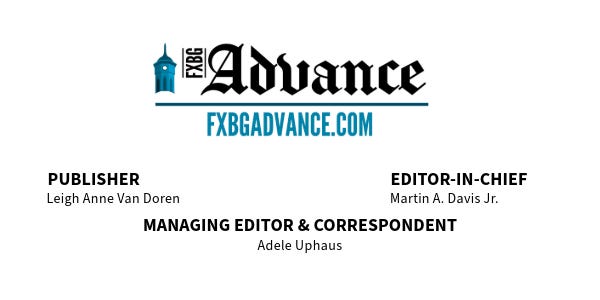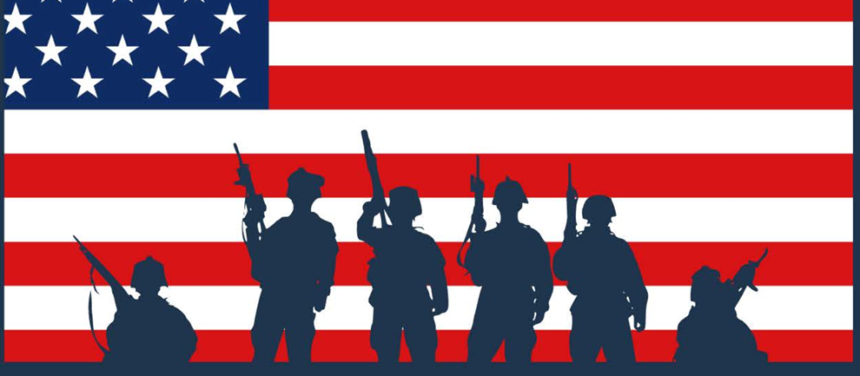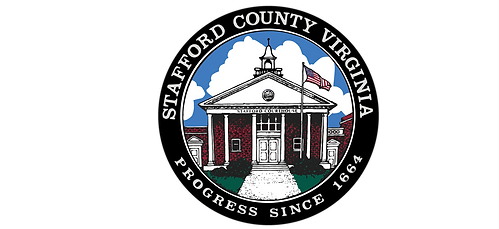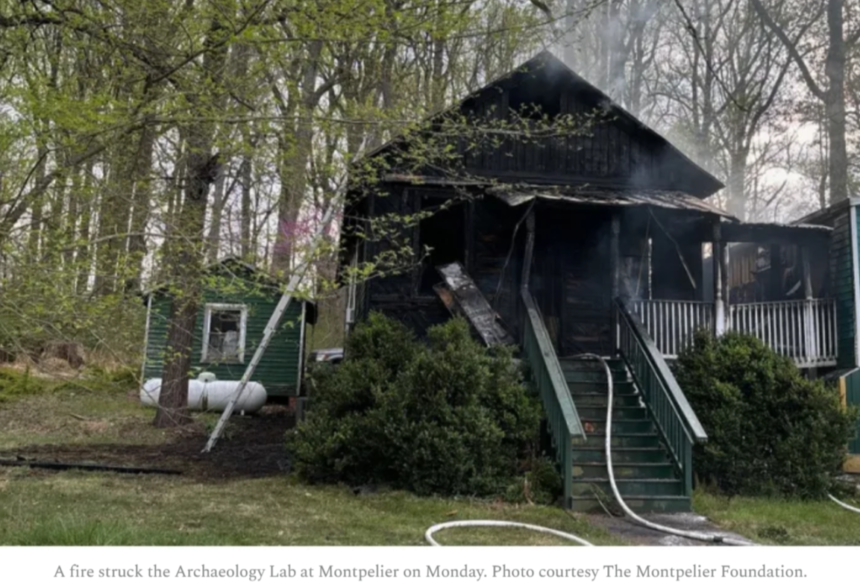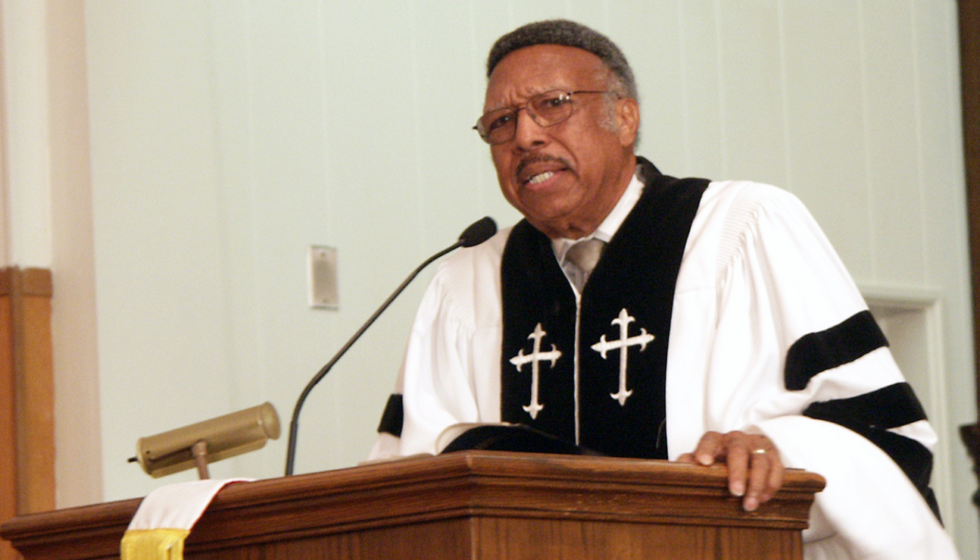
A towering figure in his own right, Reverend Lawrence A. Davies represents the culmination of centuries of African American political efforts in the city of Fredericksburg.
By Gaila Sims
Vice President of Programs and Interpretation at Fredericksburg Area Museum
While Fredericksburg’s “Mayor for Life” has been rightfully honored with numerous testimonials in the weeks since his passing on August 11th, his position within the larger history of Black activism has received less focus.
Davies was one of the earliest in a wave of Black officials elected following the 1965 Voting Rights Act. A few years after Hermanze E. Fauntleroy Jr. became Virginia’s first African American mayor (elected in Petersburg in 1973), Davies and his contemporary Noel Taylor (Roanoke) were each elected in 1976. They would in turn be followed by the historic election of Governor Wilder in 1989, the first Black governor in U.S. history.
Each of these men were singular individuals, able to create relationships, enact legislation, and rally their diverse constituents. But each of them, including Reverend Davies, was a product of what came before.
In 1838, a group of nineteen free people of color from Fredericksburg presented a petition to the Virginia State Legislature, requesting a school for their children. The signatories included Edward and William DeBaptiste, sons of one of Fredericksburg’s earliest free Black entrepreneurs, John De Baptiste, and James Wilkins, “Professor of Shaving,” a successful free Black barber and “Connoisseur at Perfuming.” The petition was compellingly written, well-organized, and included reference to the petitioners’ Revolutionary War service. Unfortunately, the petition was denied, likely leading many free Black families, including the De Baptistes and Wilkins, to leave the state.
Mark Olson, historian for Shiloh Baptist Church (Old Site), shared that in 1876, during Reconstruction, seven African American residents of Fredericksburg ran for City Council, led by Reverend George Dixon. Dixon was a prominent political activist in the area, organizing Emancipation Day marches through the city. According to a newspaper report, the march in 1870 included “several hundred colored persons” and concluded in the vicinity of Kenmore with speeches by Reverend Dixon and another local African American man, Joseph Evars.
Throughout the late nineteenth century, Black men tried to exercise their new voting rights, though after the close of Reconstruction, white candidates and parties dominated local politics. In 1902, a new state constitution took effect, severely reducing Black votership by implementing poll taxes, literacy tests, and the grandfather clause. Poll taxes meant people had to pay a certain amount to vote, literacy tests assessed potential voters’ education and understanding, often at the whims of local registrars, and grandfather clauses said that only men whose grandfathers had participated in elections could vote, obviously ruling out those whose ancestors had been enslaved.
Even still, Black community members worked to exercise their right to register, starting night schools housed at local churches to help people learn to read and write in preparation for literacy tests, taking literacy tests again and again in hopes of finally passing, organizing civic leagues to help individuals pay poll taxes, and speaking regularly to increase political awareness.
In the early twentieth century, another charismatic and influential figure emerged in the form of Reverend Dr. B.H. Hester, pastor of Shiloh Baptist Church (Old Site). Reverend Hester led the congregation from 1921 until 1961 and was particularly invested in community activism. He organized evening literacy classes and worked with Reverend Melvin L. Murchison, pastor of the sister church Shiloh Baptist Church (New Site) to start a night school.
In 1925, Hester established the Shiloh Herald with the inspirational motto, “For all things beneficial and uplifting; against all things injurious and detrimental; neutral on nothing.” The weekly called out issues like voter suppression, lack of educational opportunities, and violence against African Americans in the state of Virginia and across the country. At a time when segregation severely restricted the lives of African Americans, Reverend Hester was an incredibly important figure in Fredericksburg’s Black community.
Another of Fredericksburg’s most vocal advocates for voting rights was Dr. Philip Wyatt. Born and raised in Charlottesville, Virginia, Dr. Wyatt received his bachelor’s degree from Virginia State College and attended dental school at Howard University. He moved to Fredericksburg in the early 1930s and established his dental practice here. He became an active member of Shiloh Baptist Church (Old Site) and in the 1940s, became a foundational member of the Fredericksburg Branch NAACP. He served as president of the Fredericksburg chapter for twenty years and was also active on the state board of the NAACP. In the 1950s, he joined the Virginia Voters League, a federation of local organizations that advocated for African American voters, founded in 1941.
In 1963, following the election of Mr. Clarence Todd, the first Black School Board member in Fredericksburg, efforts for Black political participation ramped up. Community leaders met and sent a letter to city officials requesting a Biracial Commission to confront racial issues in the city. In response, an eight-member commission called Citizens United for Action was created, which led to more Black political involvement throughout the 1960s. Dr. Philip Wyatt was one of the members of the CUA, which endorsed candidates and protested Black disenfranchisement and oppressive measures like the poll tax.
Dr. Wyatt also trained younger Black activists during Fredericksburg’s sit-in movement in the 1960s, along with community leaders Mrs. Mamie Scott and Mrs. Gladys Poles Todd.
Mrs. Todd became an influential political organizer in her own right, along with a cohort of dynamic individuals including Mrs. Marguerite Bailey Young, Mrs. Mildred Brown Queen, Mrs. Blanche Alexander Hester, Mrs. Lettie Ellison, Mrs. Thelma T. Bailey, and Mrs. Mary H. Bridgewater. Mr. Weldon Bailey, a Black businessman later elected to the City Council, worked alongside these individuals to provide invaluable support and advice to Reverend Davies.
When Reverend Davies ran for Fredericksburg City Council in 1966, Black community members rallied around him. Mrs. Todd made a block-by-block map of Fredericksburg and found a chairman for each block, organizing poll watchers and transportation (especially important in a community with limited access to cars). The number of Black voters doubled.
As Ambassador Pamela Bridgewater, granddaughter of Reverend B.H. Hester told me: “I believe it is important to reflect on the fact that Rev. Davies political work was a team endeavor. It was an exciting time for our community as we had never had ‘one of us’ in this arena before and we were excited by the possibilities.”
Davies was born in Houston, Texas, and graduated from Prairie View A&M University in 1949 before serving in the Army. He received a divinity degree from Howard University and was ordained in 1956. Davies and his wife, Janice came to Fredericksburg in 1962 so he could become pastor of Shiloh Baptist Church (Old Site), where he served with distinction and passion for fifty years. He retired in 2012 and was named Pastor Emeritus. While pastor at Shiloh Baptist Church (Old Site), Davies became invested in community organizing, and actively worked with the Citizens United for Action, alongside Dr. Phillip Y. Wyatt.
Janice Pryde Davies was an activist in her own right and, as Ms. Gaye Adegbalola mentioned, “She was the lead ‘supporter,’ in keeping [Davies] organized and on schedule.”
Born in Washington, D.C., Mrs. Davies taught elementary school for twelve years in DC, helping integrate the school system in the early 1960s. After meeting and marrying Mr. Davies, Mrs. Davies spent the next several decades supporting her partner, his congregation, and his political career and taking care of their three daughters: Lauren, Karen, and Sharron. Simultaneously, Mrs. Davies established her own reputation as a community leader: she held offices locally and statewide with the American Cancer Society and co-founded the Fredericksburg Area Sickle Cell Association.
Reverend Davies served on the Fredericksburg City Council from 1966 until 1976, when he was elected the first Black mayor in the city. He served as mayor until 1996 and his tenure as mayor can be seen as the culmination of the centuries of Black struggle and efforts in Fredericksburg, though of course the work continues.
I arrived in Fredericksburg in August 2022. I was lucky enough to be invited to Ambassador Bridgewater’s Labor Day gathering, where I was introduced to Reverend and Mrs. Davies. While I was brand new to the city and had just started delving into my research, I already knew how important those two people were and are to Fredericksburg. While that was the only occasion I got to physically meet them, their presence has surrounded me as I’ve become part of Frederickburg’s vibrant, diverse, and powerful African American community. Reverend Davies will be missed, as a leader, a pastor, and a friend, but what I hope to convey to you all is this: he is part of a grand tradition of Black political activism in the Fredericksburg area, and the best way to honor him is to continue to learn about our history, take care of one another in the present, and work toward a more collaborative, more generous, and more inclusive future.




Local Obituaries
To view local obituaries or to send a note to family and loved ones, please visit our website at the link that follows.

Support Award-winning, Locally Focused Journalism

The FXBG Advance cuts through the talking points to deliver both incisive and informative news about the issues, people, and organizations that daily affect your life. And we do it in a multi-partisan format that has no equal in this region. Over the past month, our reporting was:
$8 a month supports great journalism
- First to report on a Spotsylvania School teacher arrested for bringing drugs onto campus.
- First to report on new facility fees leveled by MWHC on patient bills.
- First to detail controversial traffic numbers submitted by Stafford staff on the Buc-ee’s project
- Provided extensive coverage of the cellphone bans that are sweeping local school districts.
- And so much more, like Clay Jones, Drew Gallagher, Hank Silverberg, and more.
For just $8 a month, you can help support top-flight journalism that puts people over policies.
Your contributions 100% support our journalists.
Help us as we continue to grow!
Support FXBG Advance for $8 a month

